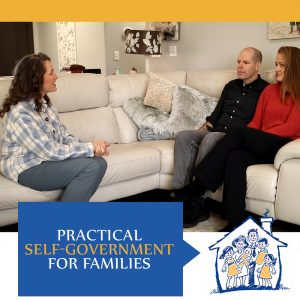Healing Relationships with Family This Holiday Season
Relationships make or break the holidays. For some, holiday family parties are stressful because of unhealthy relationships. They know attending traditional family gatherings and sending Christmas cards to “loved ones” is important. However, that ball of hurt, frustration and disgust creeps into their throat whenever they think about past relationship problems, making attending family events difficult.
Instead of discussing why modern families are so dysfunctional, this article focuses on how family members can heal fractured relationships.
First Impressions
My mother taught, “You never get a second chance to make a first impression.” Jean Bingham recently told a story that illustrates how people get stuck on their first impressions. She said there once was a boy who:
“…was the brunt of his peers’ teasing during his school years. Some years later he moved away, joined the military, received an education, and became active in the Church. This period of his life was marked with wonderfully successful experiences.
“After several years he returned to his hometown. However, the people refused to acknowledge his growth and improvement. To them, he was still just old “so-and-so,” and they treated him that way. Eventually, this good man faded away to a shadow of his former successful self without being able to use his marvelously developed talents to bless those who derided and rejected him once again. What a loss, both for him and the community!”
People like to categorize each other. This human quality isn’t unique to certain races, religions or groups. We classify animals, flowers, foods, music, books and much more. We’re analytical beings. This quality makes it easier to improve ourselves, set goals and solve problems.
However, classifying has its down side. We tend to judge others when we first meet. One of the first things we judge is if the person is enjoyable to be around and if we’re compatible.
If we find someone is enjoyable and compatible, then we’ll often give that person the benefit of the doubt when they make mistakes later. However, if a person is annoying or inconsiderate, then even if they improve later they maintain the original labels.
This snap judgment even happens in families, especially when family members don’t see each other as often anymore. It’s naturally easier to judge someone and classify them if we don’t have enough contact with them to make any other impressions.
Changing Our First Impressions
We ought to know better than to judge others by putting them in a box labeled “annoying” (or something like that) and never letting them out. We must learn to change our first impressions of others. I’ve known people who hold grudges and continually spread rumors. This is more painful to the person holding the grudge than to anyone else.
Have you noticed how innovative people are in doing things as quickly and easily as possible? We love saving time in our daily routines.
This desire for convenience is one of the reasons people hold onto first impressions and don’t give second chances. It takes work to forgive and change opinions. To reassess also requires honesty, which will likely lead to something too painful for some people: repentance. Ultimately, laziness is to blame for why people keep judging and hurting themselves and their relationships.
To change one’s opinions about someone a person must admit their first opinion may have been wrong. Then they must repent, re-analyze, and look for the good in others. Most don’t have enough integrity to do this. It takes time and self-assessment. To change impressions about others we must first recognize our own short comings.
Habitual Bad Communications
Washing dishes or styling our hair takes little thought. Such actions are on autopilot for us.
The way we communicate with our family members is very similar. We might be humble and kind with friends or people at work, but rude and abrasive with family just because that’s how we’ve always been.
To change these bad communication habits, we must deliberately script new things to say and give ourselves new responses to the same communications from others. Instead of the old judgmental or reactionary phrase you always say, this time nod your head and instead say, “Oh.” Or plan to ask family members questions and sincerely listen to their answers.
Valuing Each Other Despite Differences
To change our impressions and bad communications with deliberate action we need to decide the other person has value. People sense when they don’t feel valued. See the person as God sees them. What if that family member wasn’t someone to compete with but someone who loves you instead? If we see that person this way, suddenly they’ll have more value in our lives. Despite the differences, we can always see the value in each other and find joy in knowing a valuable person.
Push That Thought Away
Just because a person decides to change their impression, not judge, communicate more effectively, and value the other person more that doesn’t mean the original judgmental thoughts won’t return. The other person could say something or display an expression that brings back the judgments of the past. We must learn to resist the temptation to return to judging.
It’s very powerful when we tell ourselves to recognize when a judgmental thought comes, and have a plan for how to handle it. I’ve told myself that when I feel myself starting to judge, I must pray for that person and for myself. I usually pray that I will learn from them and have increased love and understanding for them. I push the selfish thought away and replace it with a more charitable and loving thought.
Even though I’m not yet perfect at this skill, I do know that applying honesty, value, repentance, forgiveness and self-government in family communication will bring more joy to our lives and our family parties.
Nicholeen’s new book, “Roles: The Secret to Family, Business, and Social Success” has more ideas about how you can improve your relationships.






